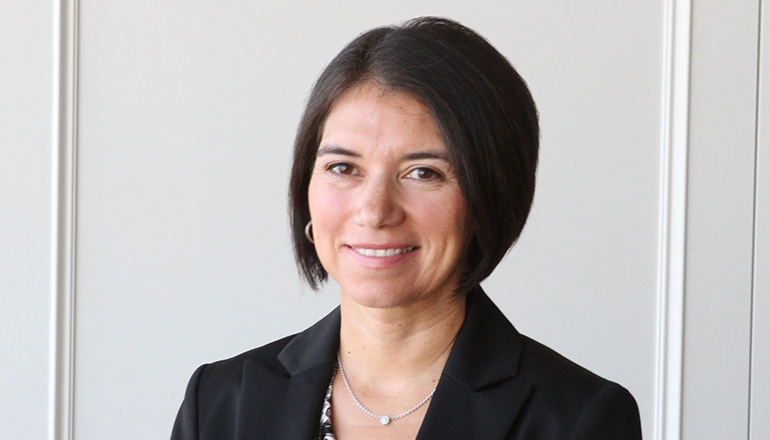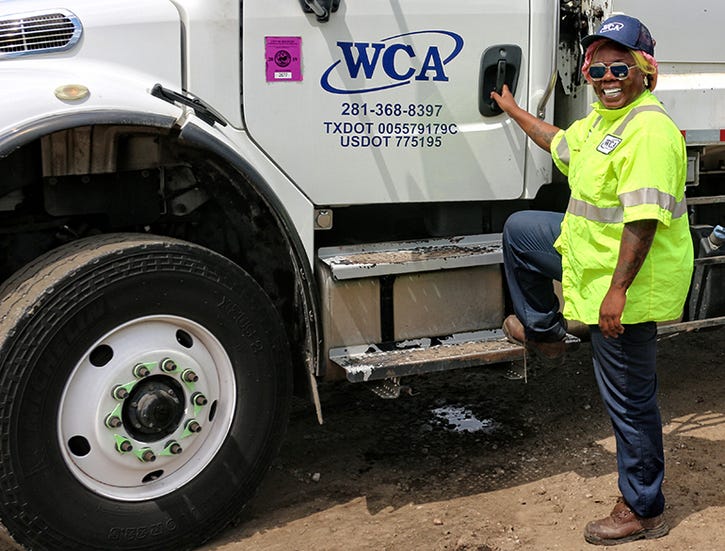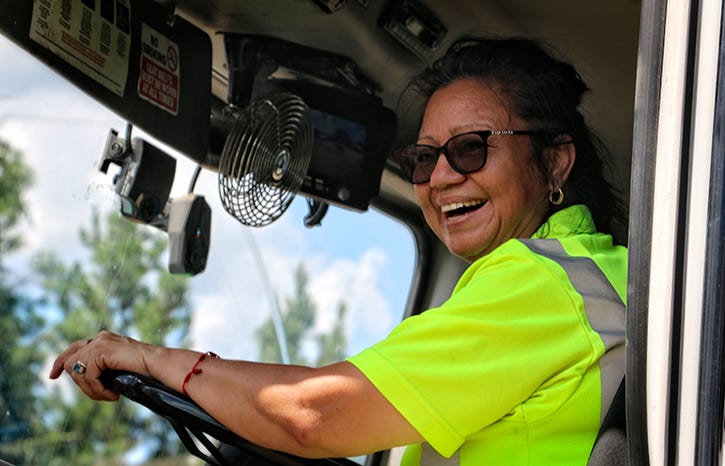Women Leaders in Waste: Dianna Cervantes of WCA Waste Corporation
WCA’s chief financial officer has worked in finance for more than 20 years and is helping to recruit other women to the waste industry.

For more than 20 years, Dianna Cervantes has put her finance skills to the test, first at Arthur Andersen and then at Waste Management, Rockwater Energy Solutions and most recently WCA Waste Corporation, where she is the chief financial officer (CFO).
Cervantes got her feet wet in the waste and recycling industry at Arthur Anderson, where she, along with hundreds of other auditors, worked on Waste Management’s restatement in 1999. Cervantes got assigned to Waste Management’s court audit, and after a year, she became a permanent auditor for Waste Management while still working for Arthur Anderson.
During that time, the Enron scandal hit, leading to the bankruptcy of Enron Corporation, an American energy company based in Houston, and the de facto dissolution of Arthur Andersen. This event presented a new opportunity for Cervantes: a full-time job offer from Waste Management.
Cervantes accepted the role as director of external reporting and worked for Waste Management for about 10 and a half years. After leaving Waste Management, she worked for Rockwater Energy Solutions for four years, and then moved on to become CFO at WCA.
As CFO, Cervantes is in charge of cash management and helps oversee departments like accounting, reporting, billing, accounts payable, accounts receivable, collections and information technology. She also works hard to be a motivating and inspiring leader, to both those who work at WCA and those who may be considering a career in the industry.

“We don’t have a complacent group in leadership, and that’s key,” says Cervantes. “We�’re always ready to face any challenge that comes our way, and our number one job here is to stay motivated and to keep our employees motivated and engaged. It’s also important that we communicate with our employees and ensure they know what we’re doing and why we’re making the decisions that we make.”
One of the biggest challenges about working in the industry is that trash often gets a bad rap, according to Cervantes. “There are so many components to this industry, and unless you’re familiar with the industry or working in it, you may not understand all of the different moving parts, which presents a number of misconceptions and challenges,” she says.
Cervantes also names safety a challenge, stressing that although the industry is competitive, the big, medium and small players come together to address safety and make sure all industry employees make it home to their families every night.
“Things have certainly changed from when I first joined the industry in an entry-level position,” says Cervantes. “Being on the finance side of things, I didn’t really hear a lot about safety. But now, I am looking at safety numbers all the time and talking about safety at every meeting we have. WCA has what we call WCA TV, which allows us to share safety tips and numbers at all of our locations. That has been useful for us, and I think it’s a really cool way to address safety.”

In her role, Cervantes also utilizes best practices that she learned at Waste Management, such as how to conduct proper reporting, how to tell a company’s story and how to help different departments understand metrics.
“I don’t think I would be here today at WCA had I not had the great experience I had at Waste Management,” she says. “I got to work in the field as well as attend board meetings, give presentations and tell the story of the company to the public. It was a great learning experience for me, and even though WCA is a private company, we still have a story to tell and people to explain our business to.”
In addition to her role as CFO, Cervantes is the treasurer of the National Waste & Recycling Association (NWRA) Women’s Council, whose mission is to professionally develop women in the industry.
“It’s not just about women; we’re trying to attack issues the industry is facing, and if we can help make a dent to tackle those issues, that’s rewarding,” says Cervantes. “I would encourage women in the industry to join the NWRA Women’s Council or at least look into it and see if it’s something they are interested in.”
As a woman leader in the waste and recycling industry, Cervantes is empowered and motivated to recruit other women to the industry, especially from the frontline.
“If we can get more women into the business from the frontline, then I think it will be a game changer,” she says. “It’s no secret that there’s a labor shortage in our industry and others, but if we can tap into a whole other labor pool (women), sell the benefits of the industry to them and perhaps make some modifications to the way we run our business, then we will be able to solve a lot of problems and give women careers they never thought they could have.”
“We still have a long way to go, but we are seeing more diversity and more women come into the industry and move up the ranks,” she adds. “One good example of that is the CFO panel that took place this year at WasteExpo. The panel included three women (including myself) and two men, which I thought was pretty outstanding.”
Cervantes’ advice to women who may be considering a career in the waste and recycling industry is to believe in your own potential and to not set unnecessary boundaries that limit your growth. “The waste industry has long been a male-dominated industry, but we’re starting to see that change,” she says. “There’s now more support than ever for women to succeed in the waste industry.”
As we continue this series, we invite our readers to email Waste360 Editorial Director Mallory Szczepanski at [email protected] with suggestions of women to feature in the coming months.
About the Author(s)
You May Also Like




